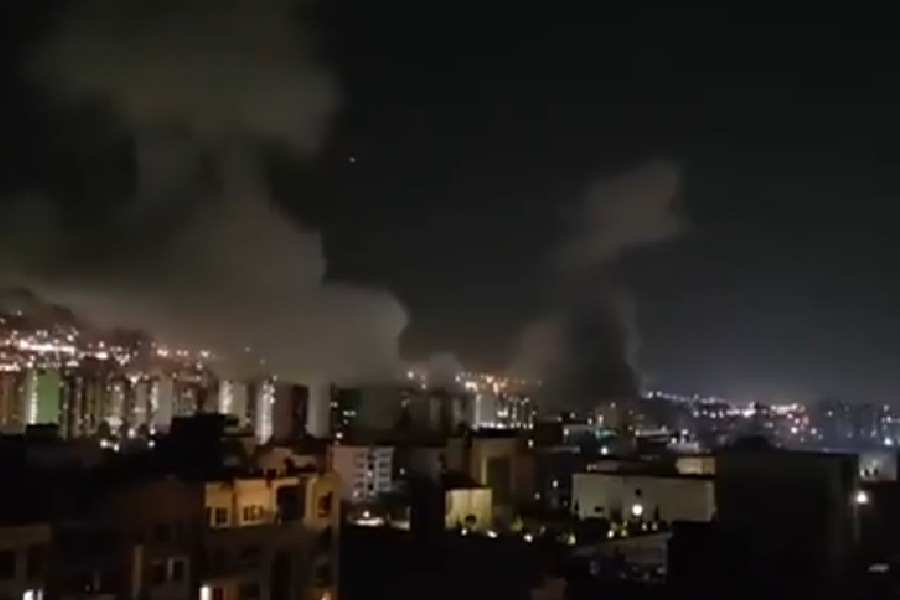Israel said early on Friday that it struck Iran, and Iranian media said explosions were heard in Tehran as tensions mounted over U.S. efforts to win Iran's agreement to halt production of material for an atomic bomb.
Israel said it was declaring a state of emergency in anticipation of a missile and drone strike by Tehran.
An Israeli military official said Israel was striking "dozens" of nuclear and military targets. The official said Iran had enough material to make 15 nuclear bombs within days.
"Following the preemptive strike by the State of Israel against Iran, a missile and UAV (drone) attack against the State of Israel and its civilian population is expected in the immediate timeframe," Defence Minister Israel Katz said in a statement.
Two U.S. officials who spoke on condition of anonymity said Israel had begun carrying out strikes on Iran and there was no U.S. assistance or involvement in the operation.
CNN reported that U.S. President Donald Trump was convening a cabinet meeting.
Crude oil prices jumped more than $3 a barrel on the news.
Iran's state TV said several explosions were heard in Tehran and the country's air defence system was on full alert.
U.S. and Iranian officials were scheduled to hold a sixth round of talks on Tehran's escalating uranium enrichment programme in Oman on Sunday, according to officials from both countries and their Omani mediators. But the talks have appeared to be deadlocked.
Trump said on Thursday an Israeli strike on Iran "could very well happen" but reiterated his hopes for a peaceful resolution.
U.S. intelligence had indicated that Israel was making preparations for a strike against Iran's nuclear facilities, and U.S. officials said on condition of anonymity that Israel could attack in the coming days.
Israel has long discussed striking its longtime foe Iran in an effort to block Tehran from developing a nuclear weapon.
The U.S. military is planning for the full range of contingencies in the Middle East, including the possibility that it might have to help evacuate American civilians, a U.S. official told Reuters, speaking on condition of anonymity.










